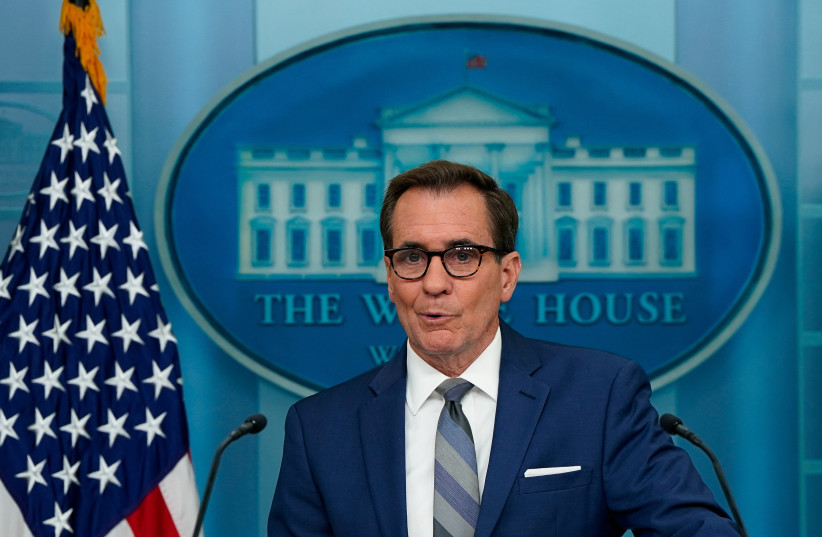Pentagon: Israel still under threat by Iran and its proxies
Israel remains under threat from Iran and its proxy groups, the Pentagon said Monday as officials from Tehran both stood firm on its right to attack the Jewish state while emphasizing that it would support any Gaza ceasefire deal Hamas agreed to.
“We have to assume that Iran remains postured and prepared,” US National Security Communications Advisor John Kirby said.
It is for this reason that the US maintains a “robust” military presence in the region, he said, adding that this is a situation the US does not take lightly.
“It’s a dynamic situation, and we have to treat it like that,” Kirby said, just one day after the IDF’s dramatic preemptive strike against drones and missiles in Lebanon as Hezbollah was set to launch them against Israel early Sunday. The Pentagon also said it believed Israel was still under threat by Iran and its proxies.

“I would point you to some of the public comments that have been made by Iranian leaders and others… we continue to assess that there is a threat of attack,” Pentagon spokesperson Air Force Maj.-Gen. Patrick Ryder told reporters.
Iranian Foreign Ministry spokesperson Nasser Kanaani ignored the success of the IDF’s strike on Sunday, as he explained that Israel had lost its power to deter and that the strategic balance in the region had shifted against it, following attacks by Hezbollah.
Fearing Iranian retaliation
“Despite the comprehensive support of states like the United States, Israel could not predict the time and place of a limited and managed response by the resistance. Israel has lost its deterrence power,” Kanaani wrote on X.Kanaani added that Israel “now has to defend itself within its occupied territories” and that “strategic balances have undergone fundamental changes” to the detriment of Israel.
Foreign Minister Abbas Araqchi stressed that the Islamic Republic reserved the right to retaliate against Israel for the assassination of Hamas leader Ismail Haniyeh in Tehran. It has blamed Israel for the killing, even though Israel has not claimed responsibility for the hit.
“Iran does not seek to increase tensions. However, it is not afraid of it,” Araqchi told his Italian counterpart on the phone, according to a statement about the phone call published on Monday by Iran’s Foreign Ministry.
Araqchi said that Iran’s response would be “definite, calculated and accurate,” according to the statement.
He later told visiting Qatari Prime Minister Mohammed Al Thani that Iran would respect a Gaza ceasefire deal, as long as it was backed by Hamas.
Reuters contributed to this report.





Comments are closed.